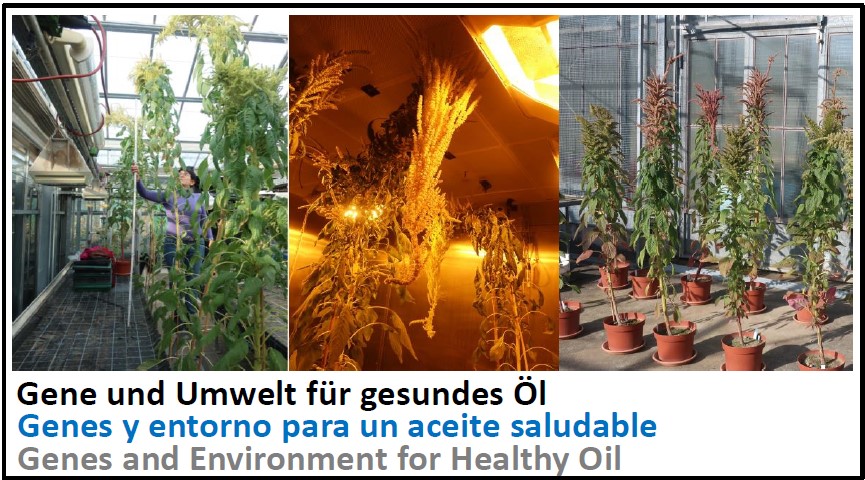 |
08.09.2023: Genes and EnvironmentOur previous work demonstrated that the Peruvian kiwicha contains much more of the valuable unsaturated linoleic acid as compared to its Mexican relatives. Would it be possible to grow kiwicha here in Germany and would it then also produce linoleic acid? To answer this question, we conducted a cultivation trial under three climatic scenarios - by temperature and lighting at the University of Hohenheim the climatic conditions of Mexico and Peru were simulated and compared to a third group that was raised at the KIT under the conditions of Southwest Germany. The data are currently processed for a third scientific publication. But at this stage it is already clear that the climatic conditions are relevant to unfold the genetic advantages of kiwicha. Contact: Prof. Dr. Peter Nick
|
AMOR - Amaranth, the Superfood of the Inka revisited
Amaranth was the Superfood of the Inka. Their esteem for this relative of the better known Quinoa was that high that they even worshipped this plant as deity. For this reason, the Spanish posed the cultivation Amaranth under punishment since it was considered as "idolatry". Only in the 1970ies the Peruvian scientist Luis Kalinowski discovered several plants, that had been secretly grown by Indio families for ritual purposes, and ventured to promote Amaranth cultivation in Peru.
In the meantime, Amaranth is also known in Europe and is traded, mostly in popped form, as component of Muesli, bars, or even chocolates. Less known is Amaranth oil that hides exciting potential. Especially the discovery that this oil contains the highly valuable Omega-3-Fatty Acids (which we normally have to take up from sea fish), opens new perspectives for a vegan diet (forget about fish oil capsules!).
In our German-Peruvian cooperation project, this potential will be unlocked for the nutrition industry. At the same time, we will develop science-based quality standards to contribute to more consumer safety.


